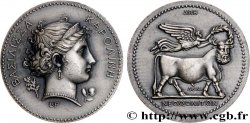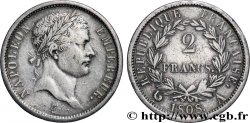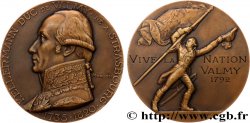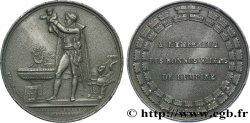fme_459727 - NAPOLEON'S EMPIRE Médaille, Passage de l’Aigle française sur la Volga - épreuve uniface
无库存.
所有在网站上销售的产品 (2021)
价格 : 100.00 €
所有在网站上销售的产品 (2021)
价格 : 100.00 €
种类 Médaille, Passage de l’Aigle française sur la Volga - épreuve uniface
日期: 1812
铸币厂名称/城市 Russie
材质 copper plated lead
直径 40 mm
模子方针 12 h.
重量 18,31 g.
侧面 Lisse
印模 sans poinçon
关于品相的说明
Patine hétérogène. Présence de coups et rayures
家谱
Cet exemplaire provient de la descendance directe du graveur Auguste-François Michaut (1786-1879)
正面
正面的文字 L’AIGLE FRANÇAISE / SUR LE WOLGA. / M.DCCCXII..
正面的说明书 Le dieu du Wolga fuyant devant l'aigle français; tête d'un esturgeon sortant de l'eau à droite. Signé : MICHAUT F..
背面
背面的文字 LISSE.
评论
D’après Wikipedia, Auguste François Michaut, le 13 juin 1812, remporte le second prix de Rome du concours de gravure en médailles de l’Académie des beaux-arts avec L’Hercule français, l’Académie ayant décidé de ne pas attribuer un premier prix. L’année suivante, il concourt à nouveau, mais le jury exprime le regret de ne pas avoir deux premiers prix à accorder, Michaut ayant déjà remporté un second prix, n’était susceptible que d’obtenir le premier. Il grave pour le gouvernement de Napoléon Ier la médaille de l’Aigle Française sur le Wolga sous la direction de Dominique Vivant Denon (1812)..
According to Wikipedia, Auguste François Michaut, on June 13, 1812, won the second prize in Rome in the medal engraving competition of the Académie des Beaux-Arts with The French Hercules, the Academy having decided not to award a first prize. The following year, he competed again, but the jury expressed regret at not having two first prizes to award, Michaut having already won a second prize, was only likely to obtain the first. He engraved for the government of Napoleon I the medal of the French Eagle on the Wolga under the direction of Dominique Vivant Denon (1812).
According to Wikipedia, Auguste François Michaut, on June 13, 1812, won the second prize in Rome in the medal engraving competition of the Académie des Beaux-Arts with The French Hercules, the Academy having decided not to award a first prize. The following year, he competed again, but the jury expressed regret at not having two first prizes to award, Michaut having already won a second prize, was only likely to obtain the first. He engraved for the government of Napoleon I the medal of the French Eagle on the Wolga under the direction of Dominique Vivant Denon (1812).







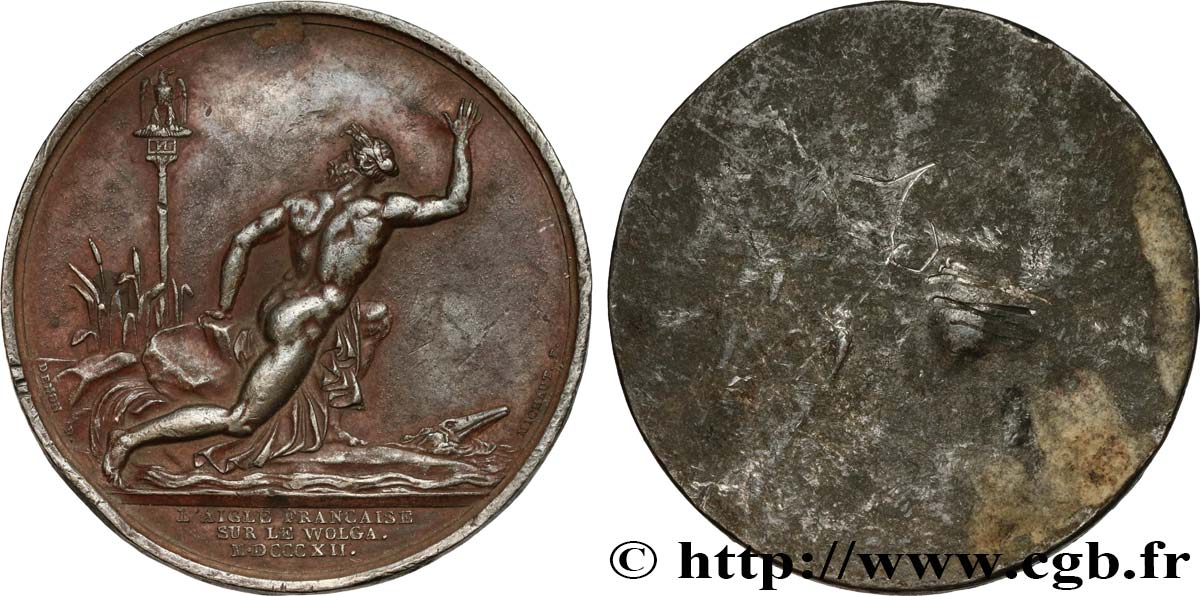
 对产品描述纠错
对产品描述纠错 打印
打印 分享我的选择
分享我的选择 提问
提问 Consign / sell
Consign / sell
 产品介绍
产品介绍